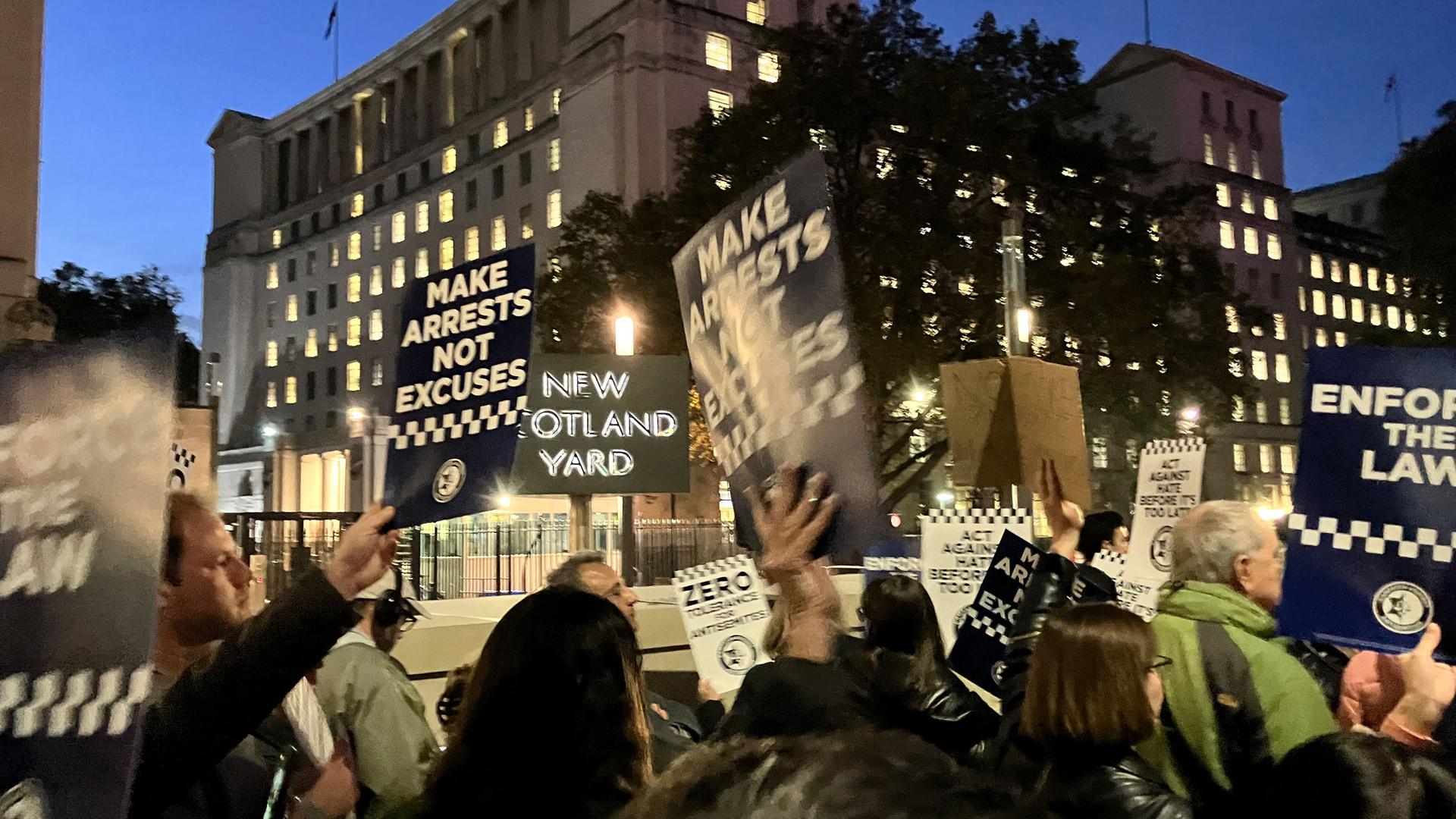Kosher bakeries and restaurants line the streets of the Golders Green, the heart of London’s Jewish community.
But for weeks now, the neighborhood has been on edge.
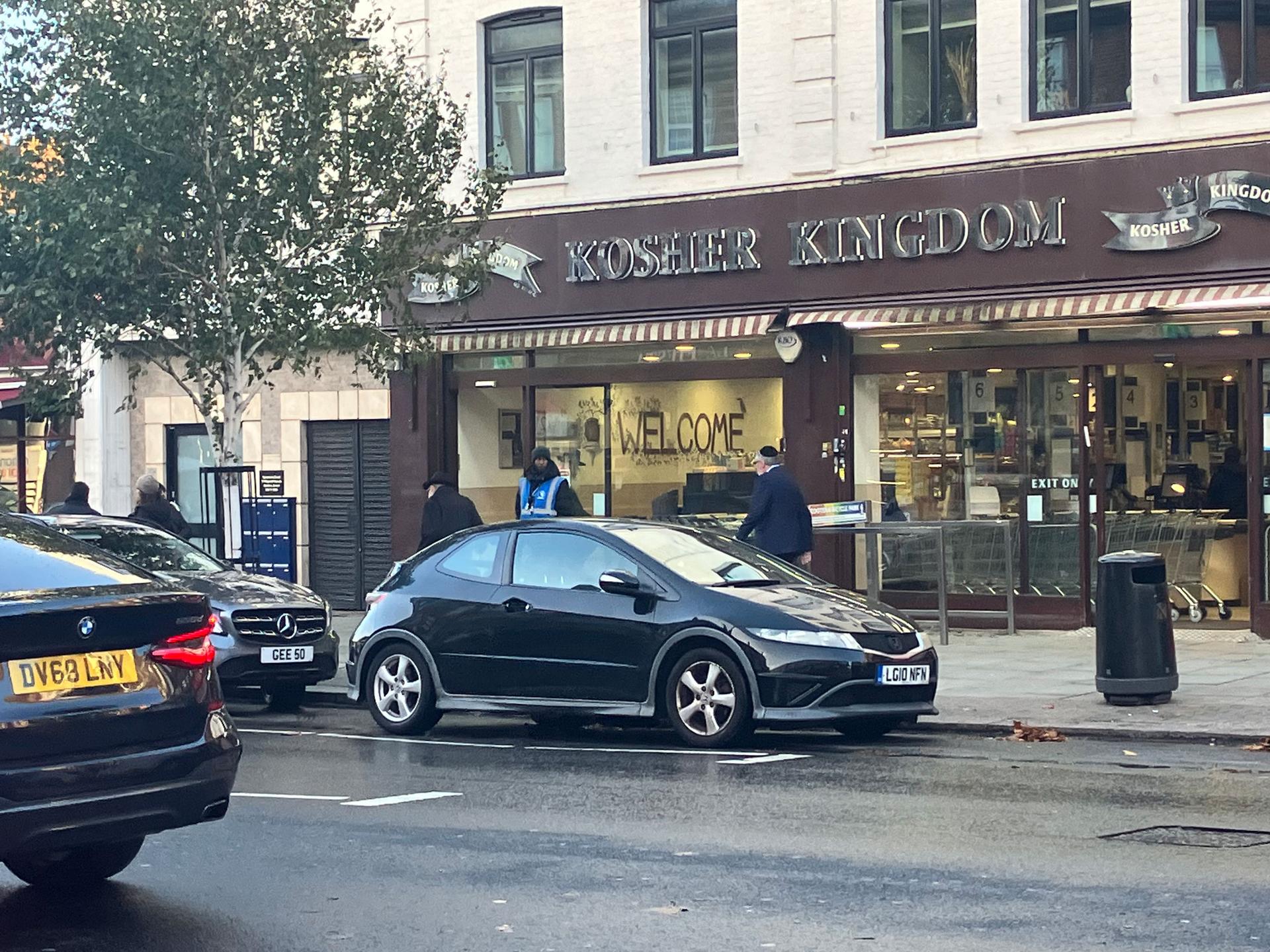
Emi Sinclair, a resident who has lived in Golders Green all her life, points out a Kosher restaurant is a place where everyone around here gathers.
Days after the Oct. 7 Hamas attack on Israel, the restaurant’s windows were shattered and its cash register stolen.
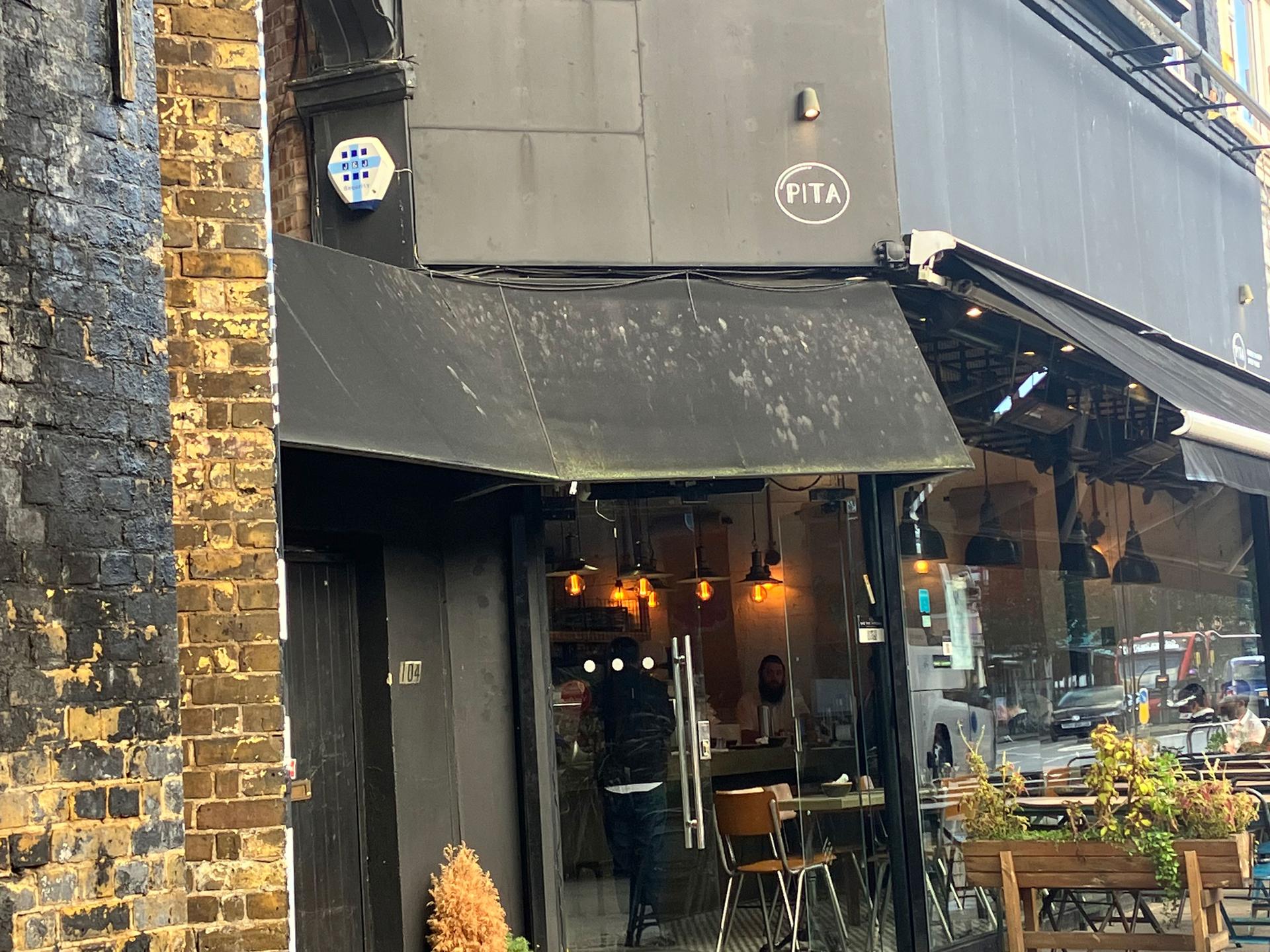
“I think it freaks everyone out,” Sinclair said. “It just felt so close to home.”
Sinclair works with the Union of Jewish Students.
Her job is to make Jewish students at universities across the UK feel safe and comfortable on campus.
But she admitted that it’s something she’s been struggling with herself in recent weeks.
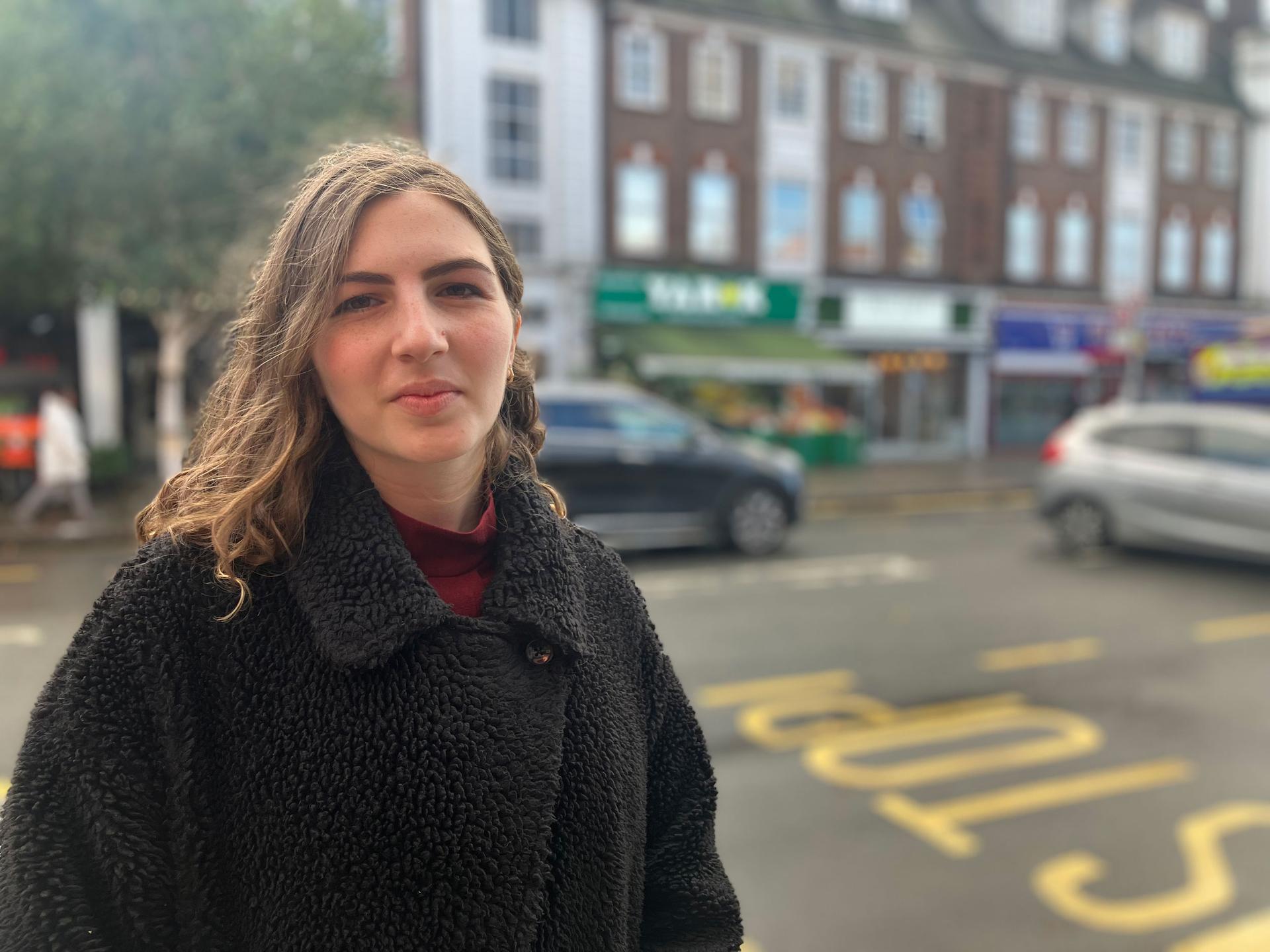
She usually wears a Star of David necklace, but for the first time in her life, she’s taken it off.
“I don’t want people to know. I don’t want people to be able to trace me,” she said. “I think I’m worried about anything aggressive happening on campus.”
Sinclair said some students have told her they’ve received death threats or been assaulted.
According to London’s Metropolitan Police, there were 218 hate hate crimes against Jewish people in the first half of October, which is an increase of 1,350%. But there were very few arrests.
At a recent rally outside London’s police headquarters, several hundred gathered to demand the police do more to intervene.
“Our Metropolitan Police looked at so many criminal offenses that were taking place and told us that they were not criminal offenses at all,” said Gideon Falter, the head of the nonprofit Campaign Against Antisemitism.
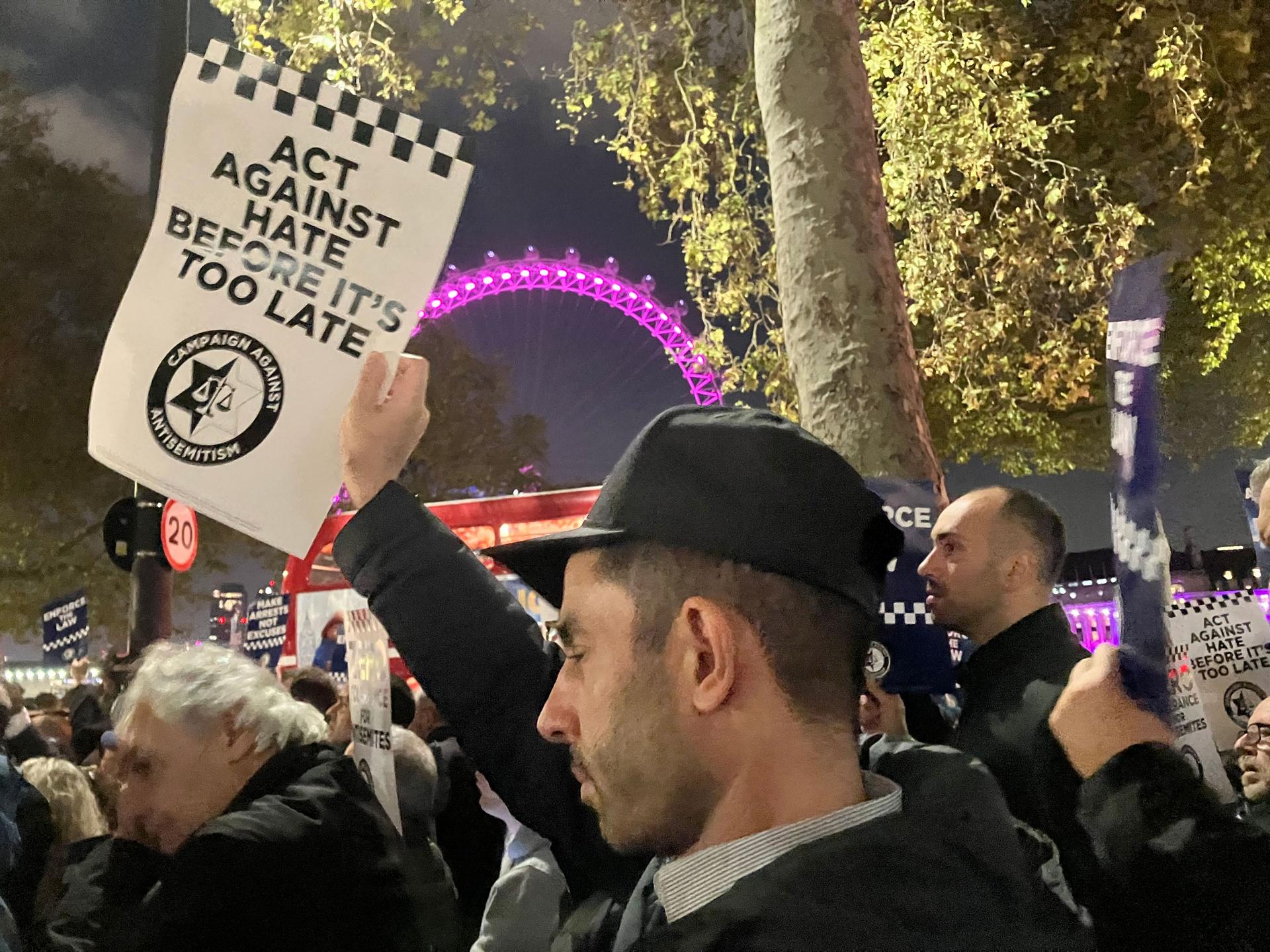
Falter, speaking to the crowd through a megaphone, singled out a pro-Palestinian march from mid-October in which people were seen carrying signs he said were clear examples of antisemitism.
“People with placards saying things like, ‘I fully support Hamas.’ Another placard with a Star of David placed in the bin and the caption, “Keep the world clean.” How did that make us feel?”
“Scared,” one woman shouted back. Others just shook their heads.
The London Metropolitan Police has said the celebration of terrorism or death will not be tolerated at marches, though expression of support for the Palestinian people more broadly does not alone constitute a criminal offense.
Kathleen Crook, a Jewish woman from Canada who attended the rally, said she believes antisemitism in Britain has always been latent — the Israel-Hamas war has simply brought that hate up to the surface.
“I think here within my friends in the Jewish community, we’re all very concerned,” said Crook, who has been living in London for 15 years. “We’re, in many instances, intimidated. And I think we can’t stand by and be intimidated and let it happen.”
That’s not to say people in the Jewish community are against the right to protest the bombardment of Gaza.
“I support the right of people to protest on behalf of the Palestinians,” said David Baddiel, a prominent writer and comedian who has written a lot about modern-day antisemitism in the UK.
“What I do not support is the fact that there are elements of those marches, things being said in those marches which imply that all Jews are somehow targets.”
Baddiel said the Jewish community feels neglected not just by police, but also by progressives who have remained silent or in some cases — fueled antisemitism. He’s even written a book about it, called “Jews Don’t Count.”
“The very people who care, the gatekeepers of morality about ethnicity and racism and discrimination, somehow or other, they don’t feel that Jews are very important in that conversation,” he said.
“And that’s because Jews are associated, and the only minority that are associated with power and wealth and controlling the world and all that nonsense about Jews. And as a result, we don’t get the same protections.”
In the absence of those protections, the Jewish community has been coming together.
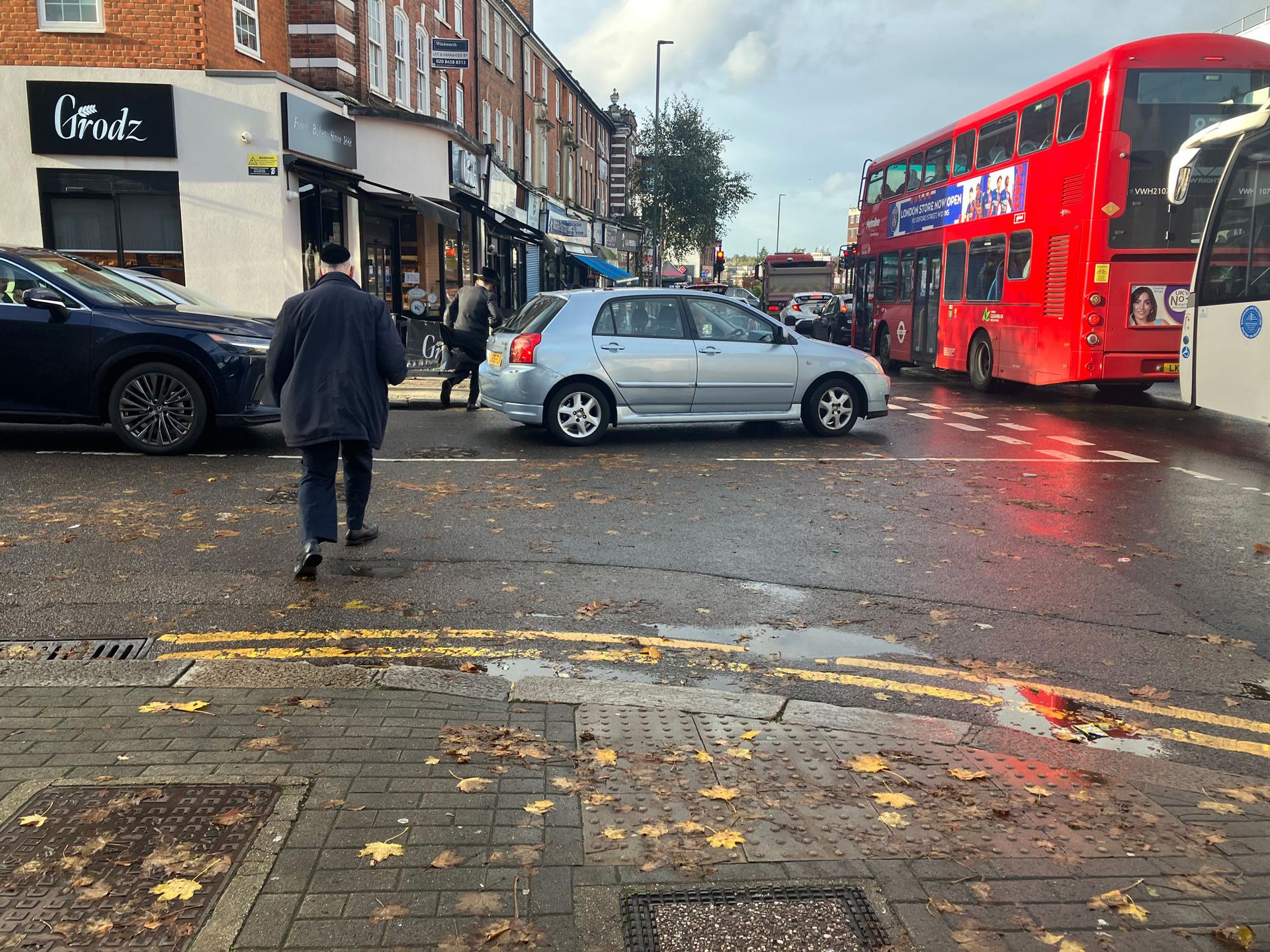
Sinclar with the Union of Jewish Students said synagogue attendance numbers are up for the first time since COVID-19 and communal Friday night shabbat dinners are packed.
Sinclar said the reaction from within the Jewish community has reminded her of a speech given by Leo Dee, a local rabbi whose family was killed by a Palestinian gunman in the West Bank earlier this year.
“He says we don’t ask why, we ask what for. And I think it’s a really powerful quote that’s like, where can we go from here?”
It’s a question that so many people in London and around the world are still asking.
